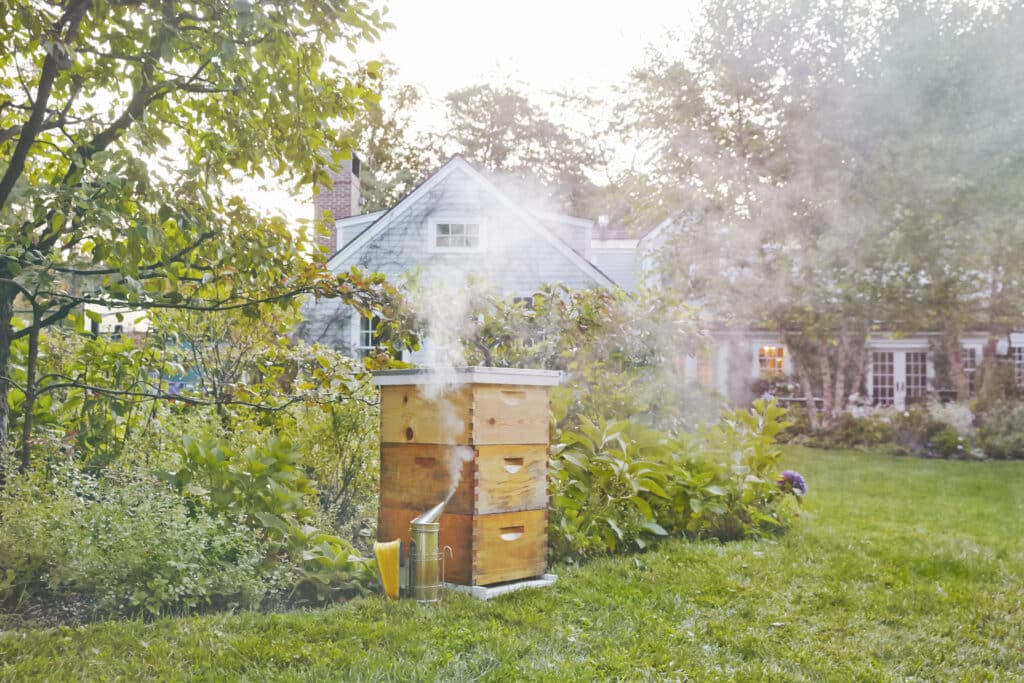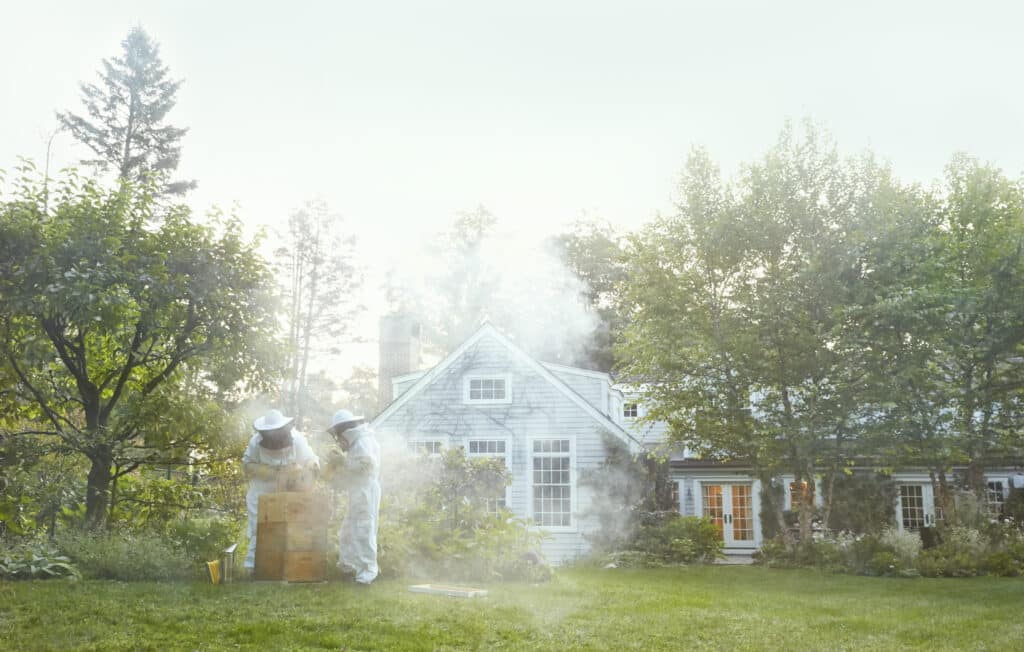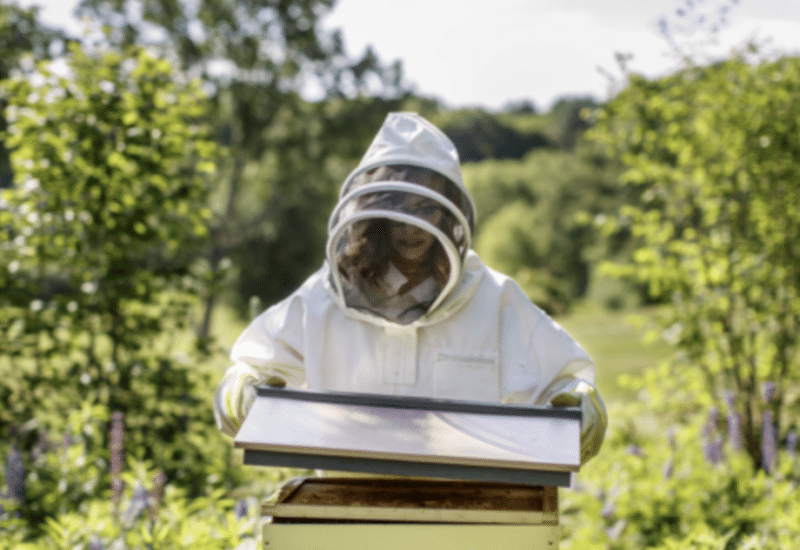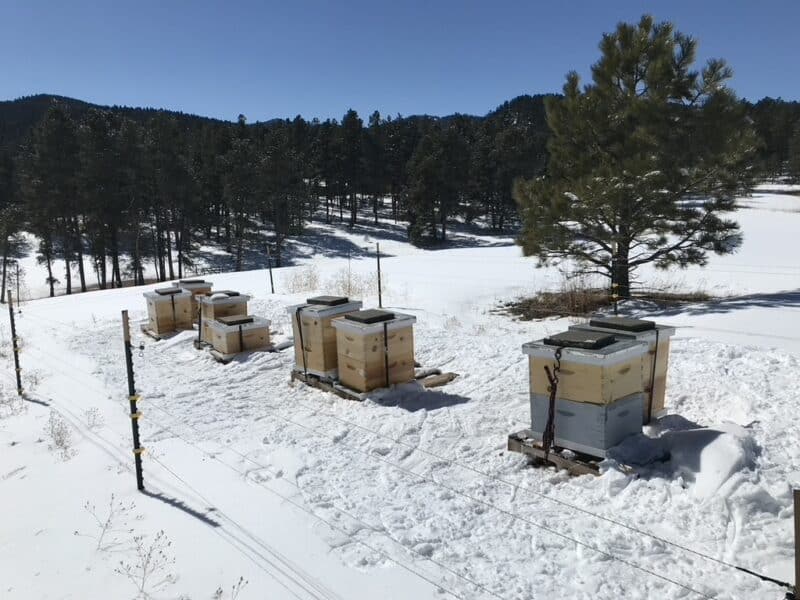Contents:
- What is the fear of bees?
- How dangerous are honey bees?
- Causes of Bee Fear
- Symptoms of Bee Fear
- Can bees sense fear?
- How to help with fear of bees?
What is the fear of bees?
Having an intense fear of bees means that, when coming into contact with or even thinking about bees, an individual can become overwhelmed and may develop a great deal of anxiety. While many people claim to have a fear of bees, for some this fear can become so intense that it develops into what is called a phobia.
According to Johns Hopkins Medicine, a phobia is described as “an uncontrollable, irrational, and persistent fear of a specific object, situation or activity. This long-lasting fear can also cause an individual to go to extreme lengths to avoid any type of contact with the source of their fear. An estimated 12.5% of American adults experience specific phobia at some point in their lives, and the official name for the fear or phobia of bees is Melissophobia, or apiphobia.
While something like Melissophobia can lead to great levels of stress and anxiety, it is important to know that phobias are often described as abnormal and irrational fears that likely stem from a previous negative event.
–– Read our Client Case Study to see how they navigated tenant opinions on bees ––
How dangerous are honey bees?
Honey bees are vegan pollinators that are non-aggressive by nature. In addition, beekeeping services like The Best Bees Company install hives using Apis mellifera ligustica, the most docile species of honey bees.
While honey bees can and do sting, the purpose of stinging is purely defensive; it is meant to scare away attackers, not kill them. Bees are not aggressive, and sting only when they or their colony is threatened. Also, contrary to wasps and bumble bees, a honey bee is only able to sting once — once it stings, the stinger is torn from its body as it flies away. To learn more about bee stings, treatment for stings, and how to prevent them, read our blog.
Causes of Bee Fear
While it is still unknown what exactly causes a phobia to develop, there are a few factors that are believed to lead to a specific phobia. According to Healthline, these can include:
- Learned Behavior: A learned behavior is one that we develop as a result of an experience we’ve had, and are different from innate behaviors, which humans have as a result of genetics and not prior experience. In this case, the fear of bees could be passed down from a family member, friend, or anyone else that we have had an experience with in the past.
- Negative Experiences: If you’ve had a negative experience with one bee in the past, chances are that you’re likely to develop a fear of bees throughout your life. Negative experiences with bees could include being stung, having an allergic reaction to a sting, or even having a bee buzz and follow you around for too long.
- Individual Factors: As humans, we all have unique experiences that make up who we are today. Because of this, there can even be an unknown individual factor as to why one might develop a fear or phobia of bees.
Symptoms of Bee Fear

People with Melissophobia or apiphobia typically try to avoid contact with bees at all costs. This can include running away from bees, or even staying inside to lessen the likelihood of not only getting stung by a bee, but also even encountering one.
Choosing Therapy also notes the following symptoms that one can develop when they are exposed to bees:
- Immediate and intense sense of fear and anxiety
- Increased heart rate
- Sweating/shaking
- The fear is out of proportion to the actual degree of threat (having intense fear around a single bee)
- Difficulty breathing
- Avoidance that disrupts life
Can bees sense fear?

All species of bees have a distinct sense of smell and are able to detect predators and any threats to their hive. So while bees cannot necessarily “smell” fear, they do have a way of detecting it and communicating that fear with the hive! One way bees do this is by emitting a specific pheromone to the rest of the hive, which is a chemical that alerts the rest of the colony that there is a threat. Pheromones are typically produced in the body of any animal when they are scared, but this does not mean that the bees will become aggressive or dangerous to humans.
While beekeepers are managing beehives, they often bring a smoker with them to puff smoke near and into the hive — this interferes with the bees’ sense of smell and helps calm the hive when it is opened.
How to help with fear of bees

There are multiple ways to deal with or help someone struggling with apiphobia, or the fear of bees. The first and possibly most impactful way to overcome a fear of bees is to take a look at the data to understand them!
At The Best Bees Company, we not only install and manage docile honey bee hives for clients, but we also take the time to educate our clients about the true behaviors of honey bees and the positive impact that a habitat can have on their overall health. Bees are critical for a strong food system, economic security, and environmental resiliency; fear of these pollinators is often rooted in misinformation.
Similar to many other phobias, experts also recommend exposure therapy as a way to help people confront their fears. This could include taking a walk outside while bees are present, not swatting away a bee when it lands near you, deciding to speak with a local beekeeper, or even hosting a hive in your own backyard.
Above all, any phobia is typically considered irrational, and in all of our years managing beehives for clients across the United States, we’ve found bees to be incredibly docile creatures — they aren’t ones you need to be afraid of. By addressing and confronting this fear, individuals will be able to truly appreciate all that bees and other pollinators do for our communities and environment.






